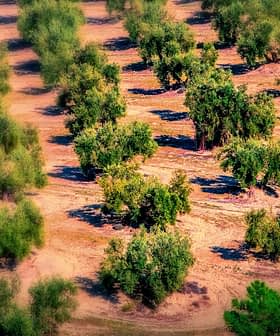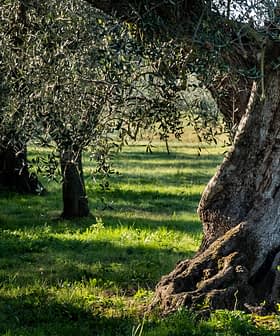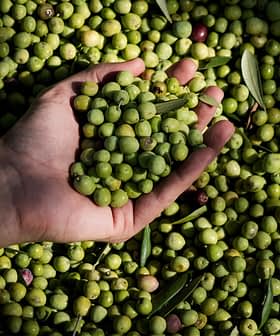Producers in Andalusia Brace for Second Worst Harvest on Record
Olive oil production in Andalusia is expected to be nearly 50 percent below the rolling five-year average. The table olive harvest will also be significantly lower.
 Jaén, Spain
Jaén, Spain  5.8K reads
5.8K readsAndalusia, the world’s largest olive oil-producing region, is expecting a 49 percent decrease in yield for the 2022/23 crop year compared to last year, with the second worst harvest since records began due to a heatwave in May and an extreme summer drought. The significant production decreases in both olive oil and table olives have raised concerns about unemployment and lost income for farmers and pickers, with the province of Jaén expected to lose up to €1 billion as a result of the poor harvest.
Farmers and producers in Andalusia, the world’s largest olive oil-producing region, expect a yield of 587,000 tons in the 2022/23 crop year, a 49-percent decrease compared to last year’s total and 47.5 percent below the rolling five-year average.
According to the regional government, which published its official production estimate earlier this week, this will be the second worst harvest since records began but will not reach the low of the 2012/13 crop year.
Officials in the region have blamed the production decrease on a heatwave in May and the extreme summer drought.
See Also:2022 Harvest Updates“The yield will fall by 50 percent this year mainly because of the two or three days of high temperatures we had during the flowering period in May,” Roberto García Ruiz, an agricultural researcher at the University of Jaén specializing in olive cultivation, told Olive Oil Times.
Temperatures exceeded 35 ºC in May and coincided with the blossoming of the olive trees. In many groves, the extreme heat caused the flowers to fall from the trees and resulted in no fruit production.
The enduring drought, which some researchers said was the worst the Iberian Penisula had seen in more than 1,000 years, resulted in trees that flowered before or after the heatwave dropping or sacrificing their fruit to save water.
Province | Olive oil production estimates for 2022/23 (tons) | Rolling five-year average variation (%) | 2021/22 variation (%) |
|---|---|---|---|
Almería | 10,000 | -31 | -25.7 |
Cádiz | 9,000 | -15.7 | -19.2 |
Córdoba | 158,000 | -42.9 | -47.3 |
Granada | 70,000 | -43.3 | -41.4 |
Huelva | 10,000 | 5.7 | -18.5 |
Jaén | 200,000 | -59.8 | -60 |
Málaga | 40,000 | -39.3 | -30.4 |
Sevilla | 90,000 | -25.4 | -35.2 |
Andalusia | 587,000 | -47.5 | -49.1 |
Overall, year-on-year production figures are down significantly in all eight of Andalusia’s provinces. However, production in Huelva exceeded the rolling five-year average by 5.7 percent.
Producers in Jaén, the most significant olive oil-producing province in Andalusia, expect to yield about 200,000 tons of olive oil, 60 percent below both last year’s total and the rolling five-year average.
Along with olive oil yields, Carmen Crespo, Andalusia’s minister of agriculture, fisheries, water and rural development, said that table olive production is also anticipated to decline significantly. Andalusia expects to produce 366,448 tons of table olives, nearly 33 percent below last year’s total.
Significant declines in both olive oil and table olive production have led to concerns of considerable unemployment and millions of Euros of lost income for farmers and wages for pickers.
“We are facing a shorter harvest than normal, which will seriously affect employment,” Crespo said. “Fewer days means less income for field workers.”
The Jaén chapter of Cooperativas Agro-alimentarias, Spain’s leading agricultural cooperative, previously estimated that the province would lose up to €1 billion as a result of the poor harvest.
Share this article









